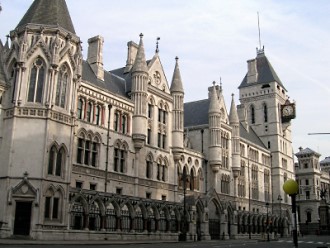Refugee groups concerned as Home Office wins appeal against groundbreaking family reunification case
The Court of Appeal has today allowed the appeal by the Home Office in the Tribunal case of ZAT and Others on family reunification for Syrian children in Calais.
 Image credit: WikipediaEIN members can read today's judgment in Secretary of State for the Home Department v ZAT & Ors [2016] EWCA Civ 810 here.
Image credit: WikipediaEIN members can read today's judgment in Secretary of State for the Home Department v ZAT & Ors [2016] EWCA Civ 810 here.
The Upper Tribunal (Immigration and Asylum Chamber) had earlier ruled in January that three Syrian teenagers and a 26-year-old man should be immediately brought to Britain from a refugee camp in Calais and reunited with their families.
According to the Guardian, the Court of Appeal allowed the Home Office's appeal against the judgment, saying that bypassing the Dublin III Regulation "can only be justified in an especially compelling case".
The judgment stated: "In the light of the psychiatric evidence before the Upper Tribunal about the first four respondents and the evidence of the French lawyers and the NGOs adduced by the respondents suggesting that there would be a delay of just under one year in the French system and that there was no possibility of expedition, the result the tribunal reached may have been justifiable: see [90] and [91]. I am, however, not entirely persuaded that, had the tribunal applied the correct test, it must inevitably have reached the same conclusion. In those circumstances, the appropriate course would normally have been to remit the matter to the tribunal for reconsideration. However, in the current circumstances and in the light of the position of the Secretary of State set out at [6] above, I have concluded that it would be inappropriate to take that course. I would therefore simply allow the appeal and make no further order."
The Migrants' Law Project said following today's ruling "The Court of Appeal has upheld the Home Office's appeal. However, the Court has not accepted the Secretary of State's argument that the Tribunal's decision was wrong on the facts before it. It has also rejected the suggestion that it will never be justified for individuals to bypass the Dublin III process in order to apply to the Secretary of State directly to join family members in the United Kingdom. It has, however, made clear that a high hurdle must be crossed before a court would conclude such an application would be justified. Lawyers representing individuals who wish to make such an application must show the system in the relevant Member State is not capable of responding adequately to their needs. They must also provide the Secretary of State with all the information she would have had if the Dublin III process or entry clearance process had been used."
Citizens UK, which helped to bring the case on behalf of the four Syrians, said: "We are disappointed that the Home Office's appeal has been upheld; relying on volunteers and lawyers to identify refugee children who may be eligible for family reunification, and then relying on those lawyers to process the claims child-by-child and case-by-case is inefficient, costly to the tax-payer, and hugely stressful for the children."
Refugee Council Policy Manager Judith Dennis said: "It's extremely concerning that across Europe children with the legal right to come to Britain are living in danger of exploitation and abuse. It's vital that all governments work together to ensure that effective systems are in place to ensure these children are quickly identified and then safely and swiftly reunited with their loved ones. Children's safety must always be the top priority."
Sky News notes that the Tribunal's original decision had been hailed as groundbreaking by refugee welfare groups who said they hoped it would pave the way for other families separated by war in Syria to be reunited.
According to Sky News, the man and the three teenagers are already in the UK, but judges said they will not face deportation.